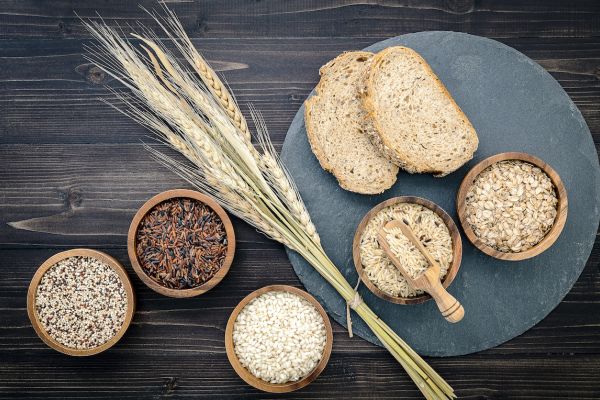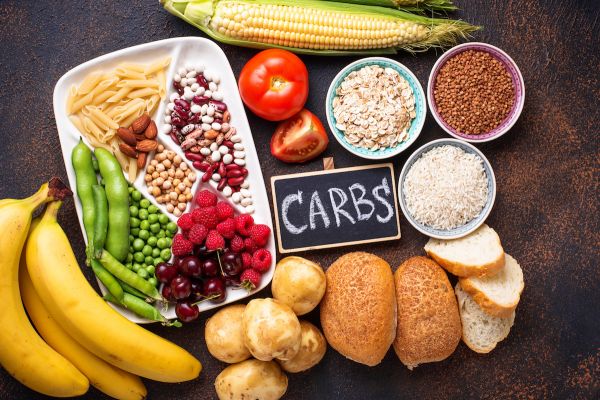Fiber is a type of carbohydrate found in food that our bodies cannot digest, and it is an important part of a healthy diet. Fiber is found in plant foods such as whole grains, nuts, seeds, beans, fruits, and vegetables.
The federal Dietary Guidelines recommend a range of fiber intake for adults: 23-34 grams of fiber per day for men and 22-28 grams of fiber per day for women, depending on factors such as age and overall calorie needs. The American Institute for Cancer Research recommends 30 grams of dietary fiber each day for adults to help lower cancer risk. Specifically, dietary fiber intake has been linked with reduced risk of colorectal cancers.
However, most Americans are not meeting even the low end of dietary fiber intake, with an average daily intake of about 15 grams per day for women and 18 grams per day for men. That means most of us could benefit from increasing the fiber in our diets. If you are increasing the fiber in your diet, make sure you are increasing your fluid intake and staying hydrated as well.
Benefits of fiber
In addition to potentially reducing the risk of colorectal cancers, benefits of fiber also include:
- Helping you feel fuller longer
- Reduced risk of type 2 diabetes
- Reducing blood sugar spikes after eating
- Lower risk of heart disease
- Weight management
- Regular bowel movements
- Providing prebiotics that may help with gut health
Have nutrition questions?
Our nutrition team at Roswell Park plays an important role in your care — before, during and after treatment.
Learn MoreTypes of fiber
There are two types of dietary fibers: soluble fiber and insoluble fiber. Soluble fibers slow down digestion and bulk up stool. Since digestion is slowed down, it takes longer for your body to absorb sugars, which is why this type of fiber can help reduce spikes in blood sugar levels after eating. On the other hand, insoluble fibers help move waste through your intestines, preventing or easing constipation. Most foods that we eat have a combination of both types of fiber. However, some foods that are higher in soluble fiber include oat bran, beans and lentils, and fruits like apples and citrus. Sources of insoluble fiber include wheat bran, many whole grain products and many vegetables.
What if I need a low fiber diet?
While you are undergoing cancer treatment, there may be many reasons that your healthcare provider might recommend a low fiber diet. Reducing fiber can allow your bowel to rest and recover and help you tolerate foods. Your physician may prescribe a low fiber diet if you have diarrhea, inflammation of the small intestine (enteritis) from chemotherapy or radiation treatments, a bowel blockage, or you have an ileostomy or colostomy. If you are prescribed a low-fiber diet, the registered dietitians at Roswell Park Comprehensive Cancer Center can help guide you.



